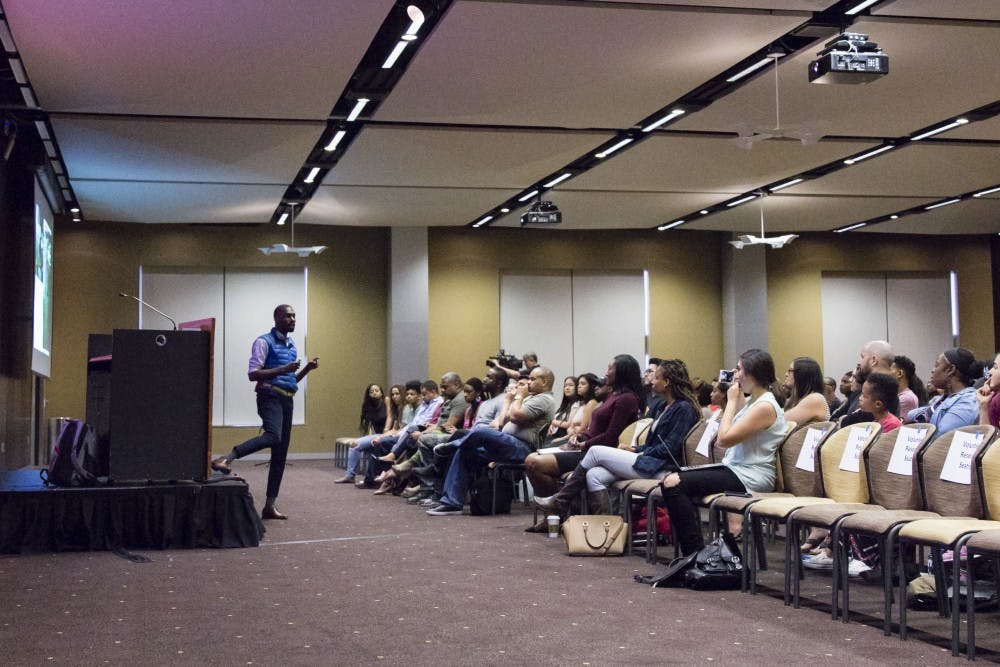Black Lives Matter activist and educator DeRay Mckesson spoke to hundreds of ASU students gathered at the Tempe Memorial Union Monday night about strategic political activism — an area in which he's had his fair share of experiences.
Mckesson has been at the forefront of the Black Lives Matter movement since its inception in 2013. Through his work with the international movement he has experienced the highs and lows of activism, from being arrested for protesting to running for mayor in Baltimore where he came in sixth.
"We knew that standing up for the truth in public won't be enough to change the world, but it will be enough to change the conversation," Mckesson said. "Protest is not the answer but it creates space for the answer."
At the Monday night event organized by students in ASU's Black African Coalition, Rainbow Coalition and Tempe Undergraduate Student Government, Mckesson stressed the importance of working from inside and outside the political system.
"It is important to know the actions behind the ideas," Mckesson said. "Sometimes the best ideas are not always winnable. If you are constantly working on the outside, you are always on the offense."
An example of Mckesson's work to change the system through policy, was his involvement in Campaign Zero, which launched in August 2015 and established a ten-point policy plan for police reform.
"I hope this adds perspective," said Lester Nnagbo, criminal justice junior and special events director for TUSG. "I hope that students regardless of whatever path they take, that whatever personal relationships they have with their peers, that is what strengthens their (ability to) organize for change at ASU." Nnagbo is also a candidate for TUSG Vice President of Services on the Benedict 2017 executive ticket.
Alyshia Gonzalez, an ASU alumna who aspires to get involved in political organizing focused on labor in Los Angeles, said that hearing Mckesson speak helped build her own organizing skills.
"I think that I now know that ... working at the grassroots base is where you first get your visibility and trust in the community to (build) on to better things like policy," Gonzalez said.
Anwuli Onwuta, a sustainability junior who is a member of Students of Syria, said the image of working inside the system can be misconstrued by what outsiders do not understand because you may compromise your values.
"When you are working inside the system, it is hard because you are seeing the system upfront which is something that people do not understand from the outside," Onwuta said. "People think that you are apart of something you do not stand for."
Donald Guillory, a professor of history at the ASU Polytechnic campus, said he is an educator of activism. Guillory said he teaches his students about social movements and creates dialogue about the past to project the future in his class.
"Students need to be socially active, whether it be at a protest or town hall. It is also important to unite in intersectionalities because many student organizations seek similar outcomes," Guillory said. "I teach about social movements and how the outcomes shaped where we are today."
Guillory's comments echoed Mckesson's closing remarks Monday night, in which he emphasized that today's resistance is fought by keeping the past as a close memory.
“The fight for freedom is very recent. It is not a distant past," Mckesson said. "Trauma is present even when people believe there is progress. The past is present in so many ways."
Reach the reporter at rdomin10@asu.edu and follow @beccanators on Twitter.
Like The State Press on Facebook and follow @statepress on Twitter.




